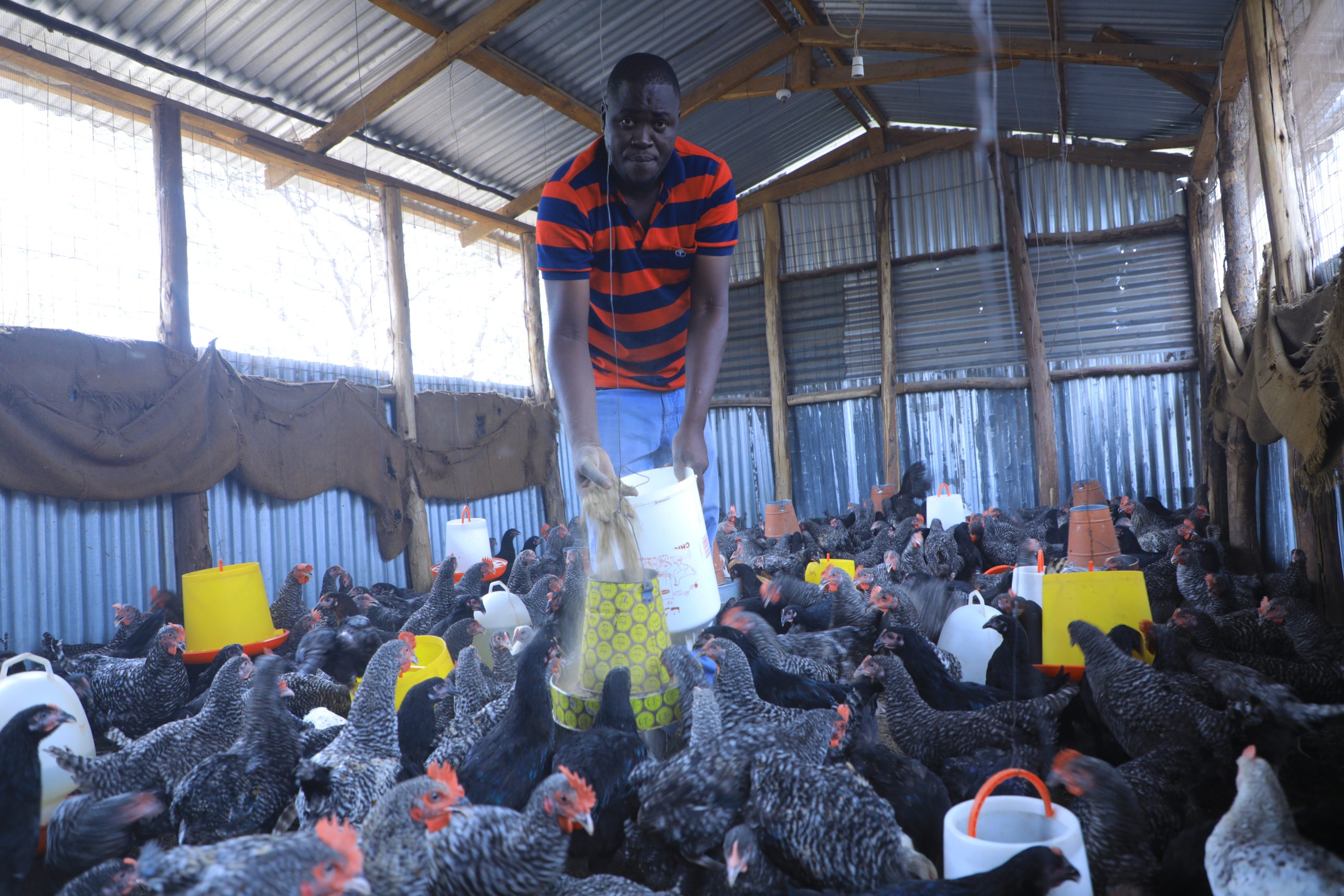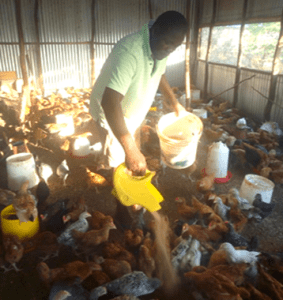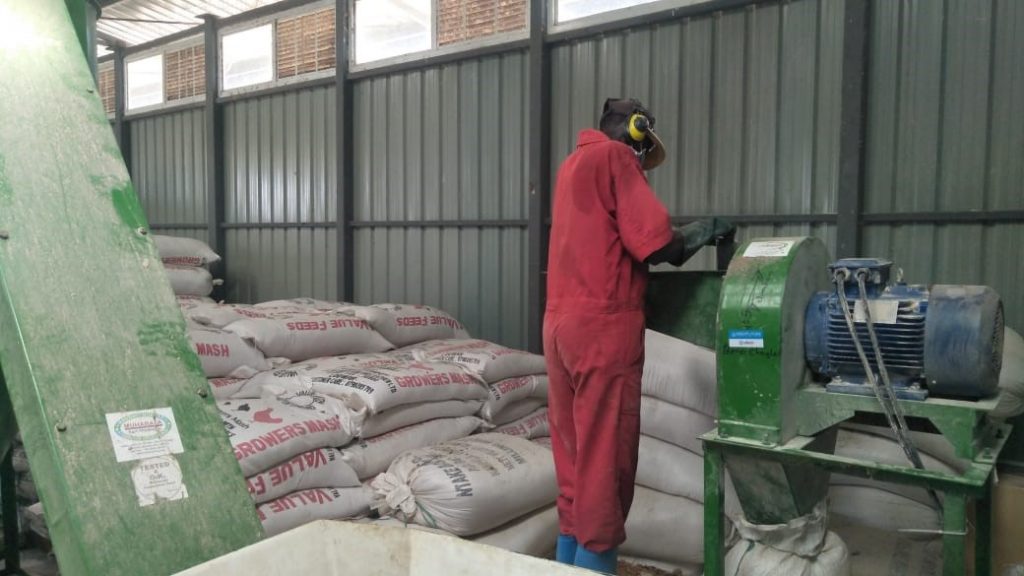
Thirty-four-year-old Raphael Ewoi is a poultry farmer living in Towokanyeni Village in Kakuma Town, located in Turkana West, a sub-county of Kenya’s Turkana County. Before venturing into the poultry business, Raphael had short-term contracts with a local non-governmental organization and worked in construction to supplement his income and meet his family’s financial needs.
“Before poultry farming, I struggled to put food on the table,” Raphael said. “I used to work as a junior staff nutritionist and was paid at the rate of job group entry-level — $45 per month — translating to an estimate of $1.50 per day, making it hard for me and my family to survive. Some weekends I had to go to various construction sites and marketplaces to seek casual labor to increase my income. Other weekends, when I failed to secure a job, I would go home without a single coin.”

The need for a sustainable source of income drove Raphael to venture into the poultry business, rearing indigenous kienyeji chickens. His choice of business came partly from the community’s need for food diversity. He also recognized the importance of having a variety of food available to benefit the overall nutrition of the community. From his savings and support from friends and family, he constructed a small poultry unit and purchased 30 chickens.
However, despite his zeal, farming knowledge, and the high demand for poultry locally, Raphael did not experience significant growth in his business due to the high cost of poultry production in the county. At the time, local production of poultry feed was nonexistent, forcing Raphael to obtain feeds from Kitale Town, 420 kilometers away. Feed prices in Kitale were high, at $28 per bag and $4 for transport. Because of the feeds’ low quality and inconsistent supply, Raphael’s productivity of his poultry stock and profits suffered, and he was unable to meet the market demand.
Connection with Feed Processor A Game Changer for Poultry Farmer
In 2020, the Feed the Future Kenya Livestock Market Systems Activity introduced Raphael to Victorian Foods, which produces poultry feeds in Loropio in Turkana County. Victorian Foods received $15,000 from the Activity to construct a chicken feed processing plant complete with the necessary equipment. Raphael began sourcing his feeds from Victorian Foods, which became a game changer for his business. He was able to access a supply of high-quality poultry feeds at an average of $25 per bag and free delivery. This reduced his operation costs, enabling him to increase profits from $105 to approximately $320 per month.

Raphael supplies chicken to two poultry vendors, four hotels, three local schools, and more than 150 households within Kakuma. In addition, he sells poultry manure to a school and six farmers. As a result of the business growth, Raphael has two employees who support in feeding the chicken and supplying them to customers. He is also able to meet his family needs and contribute toward community fundraising initiatives.
Since he started using the feeds, Raphael has seen increased egg production from five to nine eggs per hen each week. His number of chickens increased from 400 to more than 1,500. For Raphael, this was a dream come true.

“Since I started the poultry farming business, I am now able to meet some of the family needs that I was struggling to meet. . . . The community is also happy that I can meet their nutritional needs.”
–Raphael Ewoi, poultry farmer, Turkana West, Kenya
To help him realize his dream, Victorian Foods is also helping Raphael access affordable medicine and improved poultry housing for his chickens. The company is also helping him access local and external markets and providing technical assistance in modern poultry production practices as well as how to diversify poultry breeds to include broilers and layers. With an investment in poultry keeping, Raphael sees a bright future. He hopes to expand into other areas, such as growing sorghum and millet, to ensure he has enough feed for his chickens.
Learn more about our work in Kenya here.
Learn more about the Feed the Future Kenya Livestock Market Systems Activity here.







